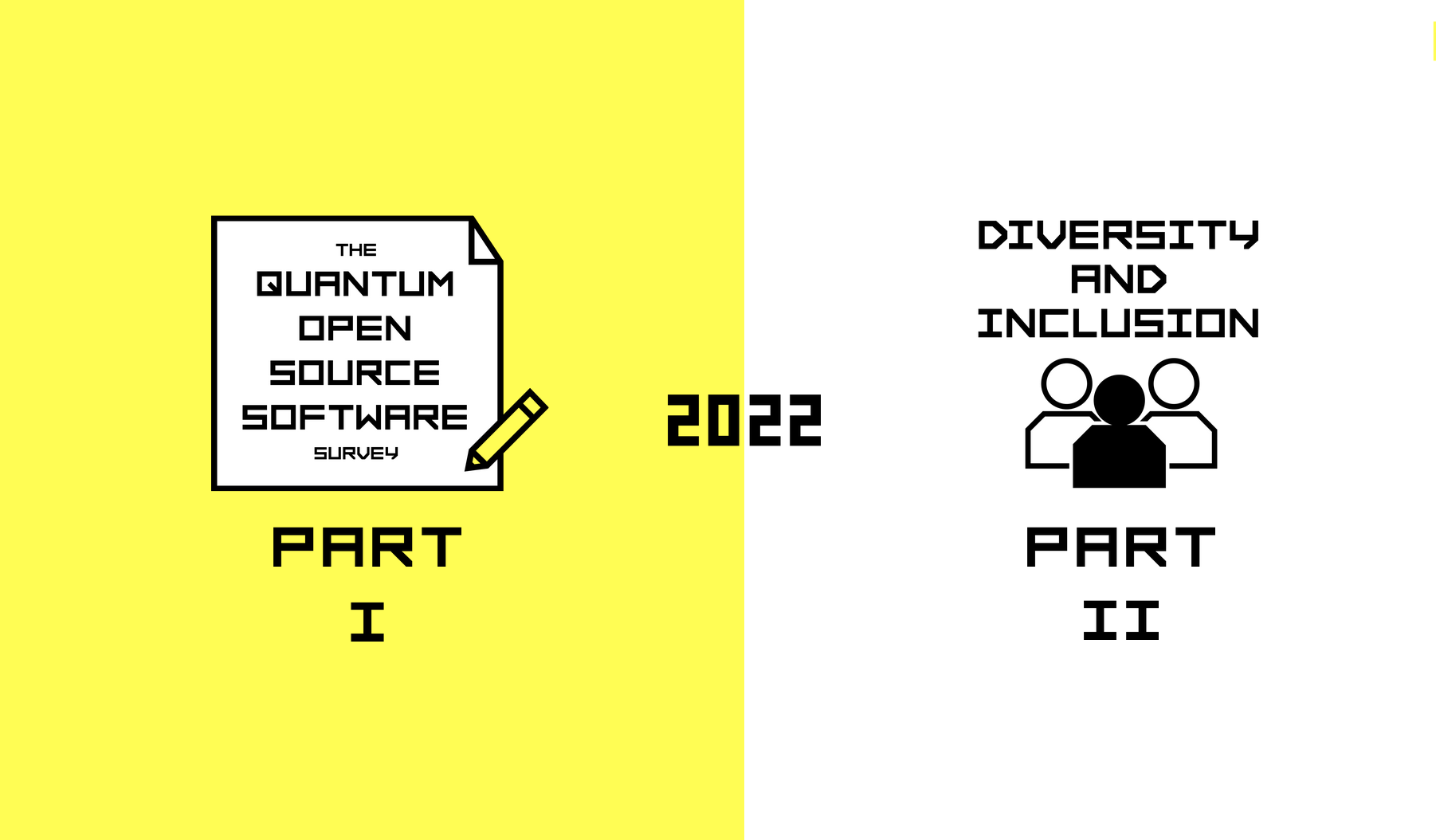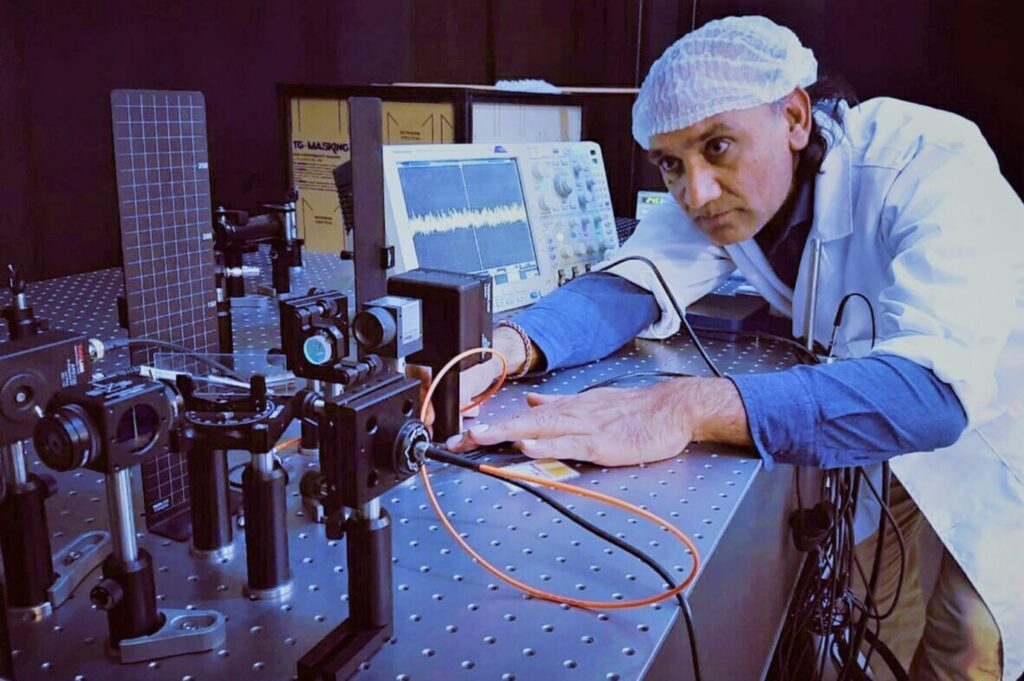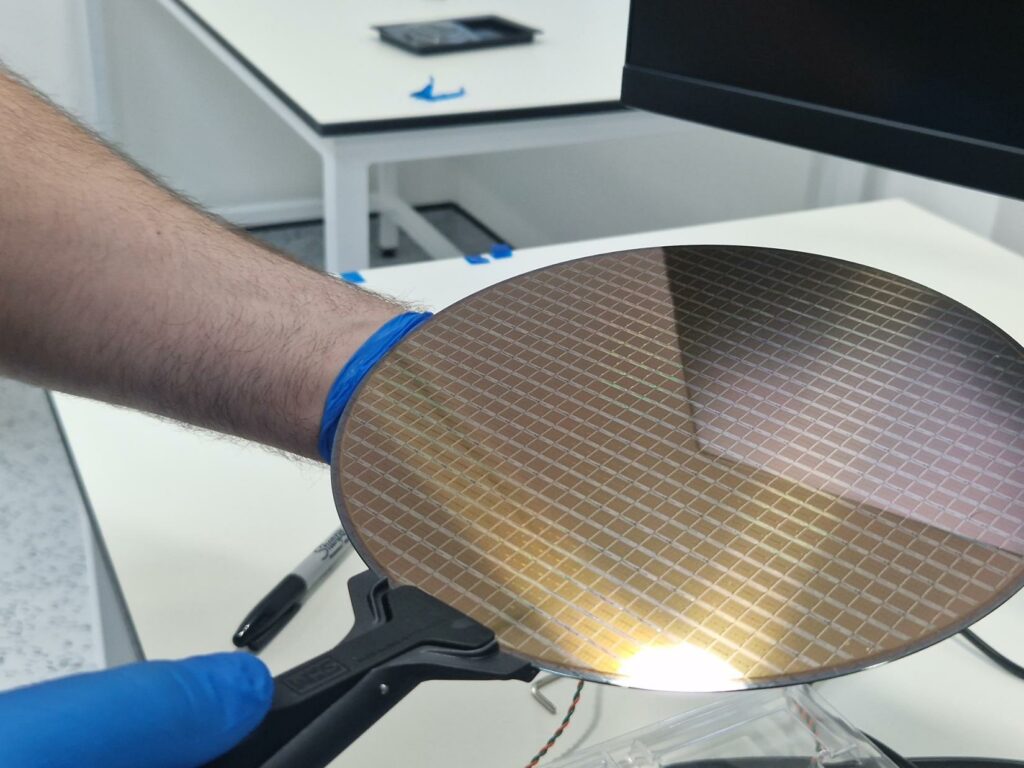The Unitary Fund announced results of its 2022 Quantum Open Source Software — OSS — Survey. The survey gathered feedback from more than 1000 members of the community.
Some of the interesting findings:
The community is spread from researchers to hobbyists.
“While the majority of quantum OSS users are researchers (55%), sizable communities identify themselves as software developers (34%), students (31%), educators (15%) or hobbyists (15%). This data speaks for the balanced heterogeneity of interests and sub-communities among quantum OSS users and developers. Almost 40% of respondents do not have a background in quantum research.”
A quarter of the community is involved in a startup.

“While about half of respondents are affiliated to an academic institution (49%), about one third are work in an enterprise organization (29%) and a quarter in a startup (25%), with 9% with no affiliation and 8% working in government. Also here, we see a quite heterogenous breakdown of affiliations.”
India is a significant part of the quantum OSS.
“The most represented country is the United States (22%), with India coming in second (12%), the United Kingdom at 9%, Canada at 6% and EU countries summing up about 15%, with Germany first among them at 5%. This data certainly speaks for the enthusiasm that quantum computing is generating in India where, compared to other major countries, fewer institutional or tech transfer initiatives have been developed (e.g, fewer startups or regional programs compared to Europe).”
Most of the community that are employed in quantum embrace remote of hybrid work environments.
“The majority of respondents either work full time (53%) or part time (10%) in the quantum industry, and among those, about 20% work fully remote, about 40% with a hybrid format and only 16% in person, possibly a signal of recent work format changes enabled by technology and accelerated by the pandemic.”
Nearly all members of the community use quantum software and have tried cloud services to connect them with quantum processing units or quantum simulators.
“About 90% of respondents use quantum software, of which about half as just as users, and about 45% either as OSS project contributor, maintainer, or owner. Turning to Cloud services connecting to real quantum processing units (QPUs) or simulators, about 80% of respondents have tried them out: That’s definitely a high percentage. The most popular service is clearly IBM Quantum (80% of respondents are current users), which probably leverages being the first major provider of QPUs and providing free access to many devices. IBM is followed by AWS Braket (21% are current users, and more would be interested in trying it out in the next 12 months), with Xanadu at 16%, Microsoft Azure Quantum at 15%, and Google at 15%. Users with Rigetti Cloud Services (7%), IonQ (8%) and Honeywell Quantum (8%) are smaller through their cloud services, but one should keep in mind that their QPUs are popular and available also through the major cloud service providers. It will be interesting to see if in the future “vendor-lock-in” effects will consolidate the cloud offer or a multiplicity of cloud-access providers will keep broad. Maintenance, documentation and price are major factor for users to decide whether to use a cloud service or another one.”
IBM is the most popular platform for quantum OSS community.
“With regards to Full-stack development platforms, respondents have indicated that IBM’s Qiskit (including Qiskit Aer) is their most popular library (81%), followed by Google’s Cirq and Xanadu’s PennyLane (29%) and then by AWS SDK in Python (16%) and tket (15%) (Honeywell Quantum). Interesting to see the interest in AWS SDK for the next 12 months. Among libraries with more than 10% of users there are Strawberry Fields and QuTiP-QIP (an affiliated project of Unitary Fund and the only project of these not directly backed by a startup or corporate). Other popular libraries are Dwave’s Ocean SDK, Q# (Microsoft) and cuQuantum (Nvidia), Rigetti’s pyQuil and Quirk. Documentation is deemed very important or important by about 90% of respondents as a factor to weigh in when choosing an SDK.”
Python is the most popular programming language among respondents.
“The most popular programming language is definitely Python, and this was to be expected, but it is quite impressive that over 94% of respondents use it, while the second most popular framework is much behind, C/C++ (26%), with Mathematica and MATLAB tied at 10% and reached by Julia. Rust appears at 7%. It will be interesting to see how a scientific language like Julia and a performant language like Rust will change in adoption next year. Jupyter Notebooks and notebooks in general are very popular.”
Overwhelming majority have a positive view of OSS in the quantum software community.
“…. 56% find it very welcoming, 28% somewhat welcoming and 10% somewhat welcoming or worse: There is definitely the opportunity to work on this data. 94% of respondents have a positive view of OSS in the quantum software community, with 78% finding it has a very positive impact and 16% a somewhat positive impact. With respect to the most sought after sources of answers or information when developing quantum software, project documentation or project websites are the most popular ones (84%), with project repositories and codebase coming in third; also important are deemed the Quantum Computing Stack Exchange, Stack Overflow, and servers such as Slack and Discord, and Youtube videos. Suprisingly, other forums are slightly less popular nowadays (8%). It is also quite surprising to read that among the types of resources most helpful for learning or contributing to quantum open source projects, video resources fare first (67% find them useful), followed by digital education text resources, hackathons, participative courses, mentorship programs and certificate or degrees (all above 40%).”
If you found this article to be informative, you can explore more current quantum news here, exclusives, interviews, and podcasts.




















